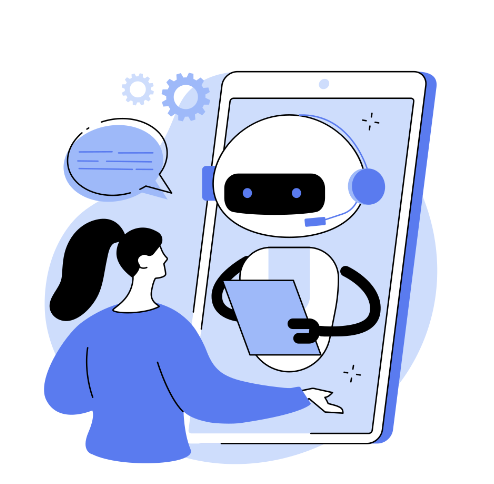Please visit this website to view my prediction for language learning apps. For the best mobile experience, rotate your screen lengthwise.

A3: The Future of Language Learning
Posted in (A3) Mobile Forum, and Mobile Education
4 Comments
Leave a Reply
You must be logged in to post a comment.
Hello Lynsey,
Great presentation, highly accurate information, and straightforward. It might be quite difficult for an ESL teacher to participate in speaking exercises with every student at once.
This artificial intelligence will transform ESL classes and make it easier for students to practice speaking outside of class.
LLA will be able to create a personalized learning experience as the algorithm will be able to design needs based learning and scaffold the activities to fill the gaps.
Dear Lynsey,
Thank you very much for skillfully uniting the present and future of the language learning apps in your great well-thought and detailed A3, and engaging the ideas of many Mobile Feast projects here too. I copy pasted your resources as well.
I totally agree with your concerns, especially with its data storage part because only yesterday I had to manually clean my Android’s apps to be able to receive calls and messages on my phone.
As a constant Duolingo user (more than 100 days now!), I would definitely say Yes! to better feedback that you suggest in your imaginary LL app and a No! to nudges. I am afraid that nudges would kill my enthusiasm, and I need it to proceed.
I also believe that Duolingo’s chatbot is better now than it was in 2019 based on Kim et al. table – it uses a personalized approach and doesn’t worry about typos much.
Regarding your idea of alternative modes of learning, I have heard that Duolingo was more flexible in the past. Now I have to use YouTube and other online resources of theoretical and practical nature to make my language study more diverse.
In order to criticize something, I would avoid putting vocabulary in opposition to conversational competence. From my perspective, the application of the communicative approach alone to teaching foreign languages has a lot of drawbacks, the worst of them, in my opinion, is nurturing a myth that it is possible to study a foreign language quickly, easily, and without much effort.
I saw a victim of such an illusion recently when a very wealthy person of Ukrainian origin asked for my advice on how to improve his English. Because of his excellent organizational and business skills, he became financially independent in Canada pretty quickly and managed to pass all the language tests necessary.
Now he wants to socialize better, but he can’t because native Canadians prefer to keep their distance from him. He suspects it is because of his language. I partially agree with this explanation because his English is fluent, understandable, and full of lexical and grammatical mistakes of every kind. I have never seen a person so competent and incompetent in English at the same time. He told me he had learned the language mostly from the movies.
I don’t know how to help this man because he is not used to working on the language diligently while a behavioristic approach with its traditional grammar and memorization seems to be a perfect answer here. But this person centers on quick victories which are not possible in his situation. I also suspect that learning using several approaches is so much better than re-learning.
I think, Lynsey, that this businessman will benefit from your future learning app built on AI IF he starts learning another language there, for example, French or German, to get first of all some theoretical knowledge, then to apply this knowledge to practice, and only after that to transfer these language acquisition skills to his poor advanced English.
Again, thank you so much for dreaming big on the topic of my particular interest, Lynsey. I am impressed by your informative and aesthetically pleasing presentation. I am going to study your A3 again and again, together with other great A2 projects of my peers.
With warmest regards,
Anna
Hi Lynsey,
This is a great idea! Seeing how people actually learn languages best and removing barriers to the learning (such as travelling to a new location to learn the local language). This seems like a great app to help with confidence, and the natural flow of languages that native speakers use to communicate.
This app would definitely be useful to many students, from ELL to international students and refugees who know very little of the language in the country they find themselves in. While conversation is sometimes the best way to learn language, this app would be great for those who are nervous or anxious about starting conversations with random (or relative) strangers to surmount the initial panic of trying something new.
I can’t wait to see what will happen and if an app like this could be made and overcome the challenges that you outlined.
Hi Lynsey, great A3, your website was very easy to navigate and enjoyable. I am looking forward to the future of language learning because I personally like languages and have garnered a basic knowledge of many languages from movies and songs and would like the opportunity to learn further with an LLA.
The ability for LLAs to simulate communication with native speakers to create immersive social learning experiences will also address the gap of learning the language along with the associated body language of the native speakers. When learning asynchronously, learners may miss out on very significant body language nuances that could change the meanings at times, but with an LLA, there could be the option for learning the language along with body language which an AI could assess to ensure it is correct.